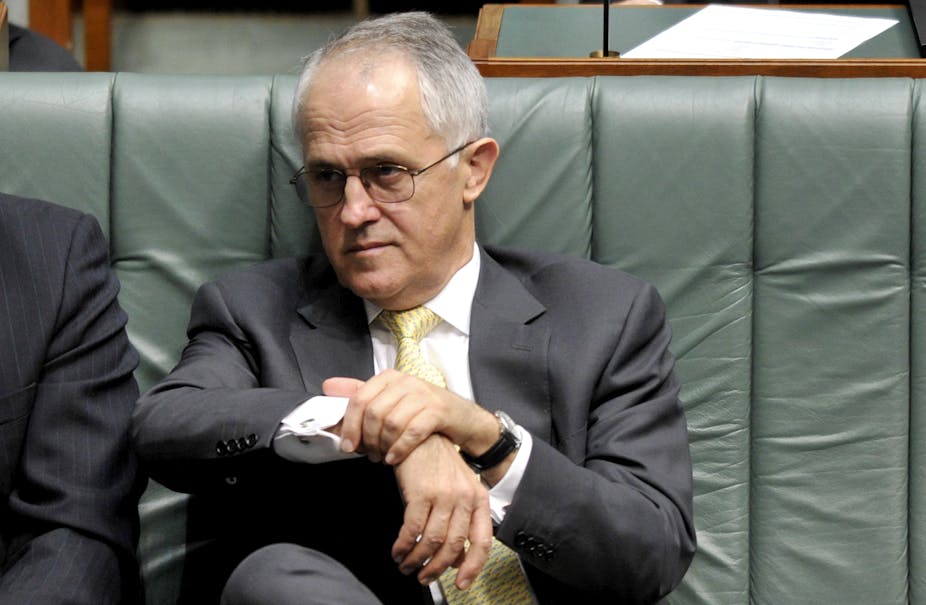Malcolm Turnbull’s call to change Question Time is admirable. He has proposed looking to the British system, where the Prime Minister is only required to answer questions one day a week, giving other ministers and policy issues a greater share of the limelight.
But the reality is that Question Time has a special role in Australian politics. We are brought up with Question Time on the television, in the papers and now increasingly on social media. For better or worse, it represents the translation of the political process into the everyday.
We know and understand our politicans by where they sit, how they look and how they act rather than listening to what is actually being said. For many Australians this is democracy in action. Visits to the federal parliament by most children during their school days further reinforce this view.
This is politics for the masses and it needs action, colour and lights, especially if it is to set the tone and agenda for the evening news.
Changes such as the prime minister only attending Question Time on designated days have already been tried during the time of Paul Keating’s leadership in the mid 1990s. The opposition at the time opposed the changes and vociferously attacked Keating for being a part-time Prime Minister. Although the attacks were over the top, the changes meant many missed the entertainment of the day and Keating throwing the “switch to vaudeville” during Question Time.
When Keating was in Question Time, the press gallery was packed and the public galleries were jammed for the prime minister who brought us the J-curve and taught us economics. It was his incredible facility with the vernacular and an ability to explain the most complex of issues in simple language that made the political processes accessible. Everyone wanted more, including the opposition.
Their point was made and Question Time returned to the familiar for everyone concerned and the prime minister attended everyday.
Perhaps Malcolm Turnbull should instead take a look at the Welsh Assembly where the chamber is specifically designed for MPs to sit in a horseshoe shape so there is no notion of face-to-face combat, but rather a sharing of information.
Questions are put on notice and the leader attends only a couple of times a week. Question Time is very low key and policy is discussed along with its implementation. This is serious discussion and MPs are given very specific and factual answers, albeit in both Welsh and English.
But I am not sure the public galleries, the visiting school children and those who see Australian politics as akin to a sporting contest are quite ready for such serious debate.

